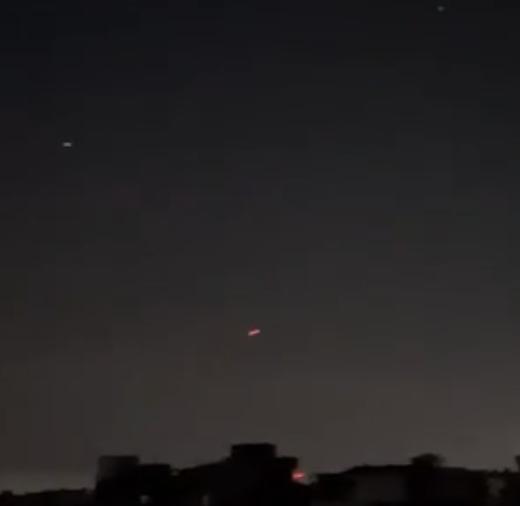
2 Pakistani drones shot down in J&K, heavy exchange of artillery fire on
The ongoing tensions between India and Pakistan took a dramatic turn on Friday evening, as Indian Army Air Defence Units shot down two Pakistani drones in the Naushera sector of Jammu and Kashmir, reported ANI quoting defence sources. The development comes as a heavy exchange of artillery fire is underway between the two sides in the same sector.
According to the report, the drones were detected by the Indian Army’s Air Defence Units, which quickly took action to neutralize the threat. The successful interception of the drones is seen as a significant achievement for the Indian military, which has been on high alert since Pakistan launched a surprise attack on several Indian cities, including Jammu, on Thursday evening.
The Pakistani attack, which was preceded by a series of ceasefire violations along the Line of Control (LoC), caught the Indian military off guard, prompting a swift response from the Indian Air Force. Indian warplanes launched precision strikes on several Pakistani cities, including Muzaffarabad and Rawalpindi, in a bid to neutralize the threat.
Pakistan, however, has continued to escalate the situation, with its military launching a series of retaliatory attacks on Indian positions along the LoC. The Indian Army has responded with equal ferocity, with reports of heavy artillery and small arms fire exchanges between the two sides.
The situation in Jammu and Kashmir has been tense for several days, with Pakistan-backed terrorists and separatist groups engaging in violent protests and clashes with security forces. The latest development has only added to the sense of unease, with residents of the region bracing for the worst.
The escalation in tensions between India and Pakistan is widely seen as a result of the ongoing standoff between the two countries over the Kashmir issue. Pakistan has long claimed that the Indian government’s decision to revoke Article 370 of the Constitution, which granted special status to Jammu and Kashmir, was a violation of international law.
India, however, has maintained that the decision was a constitutional necessity, aimed at integrating the region with the rest of the country. The move has been widely supported by the Indian public, who see it as a necessary step towards strengthening national unity and security.
The situation on the ground remains highly volatile, with both sides trading heavy fire and reports of casualties on both sides. The international community has called for restraint and a peaceful resolution to the crisis, but it remains to be seen whether the two sides will heed these calls.
As the situation continues to unfold, it is clear that the stakes are high and the risk of escalation is ever-present. The Indian military has been put on high alert, with additional troops and equipment being deployed to the region to bolster its defenses.
For its part, Pakistan has vowed to continue its fight against India, with its military and intelligence agencies working closely together to coordinate their efforts. The Pakistani government has also called for international support, accusing India of human rights abuses and violations of international law.
As the situation continues to deteriorate, it is clear that the people of India and Pakistan are paying the price for the actions of their governments. The ongoing violence and tensions have resulted in the displacement of thousands of people, with many more forced to flee their homes in fear of their lives.
In conclusion, the shooting down of two Pakistani drones in Jammu and Kashmir and the ongoing heavy exchange of artillery fire between the two sides is a stark reminder of the fraught and fragile nature of the relationship between India and Pakistan. The situation remains highly volatile, with the risk of escalation ever-present.
It is imperative that the international community continues to call for restraint and a peaceful resolution to the crisis, rather than allowing the situation to spiral further out of control. The people of India and Pakistan deserve better than to live in a state of perpetual fear and uncertainty, and it is up to their governments to take decisive action to de-escalate the situation and restore peace and stability to the region.






